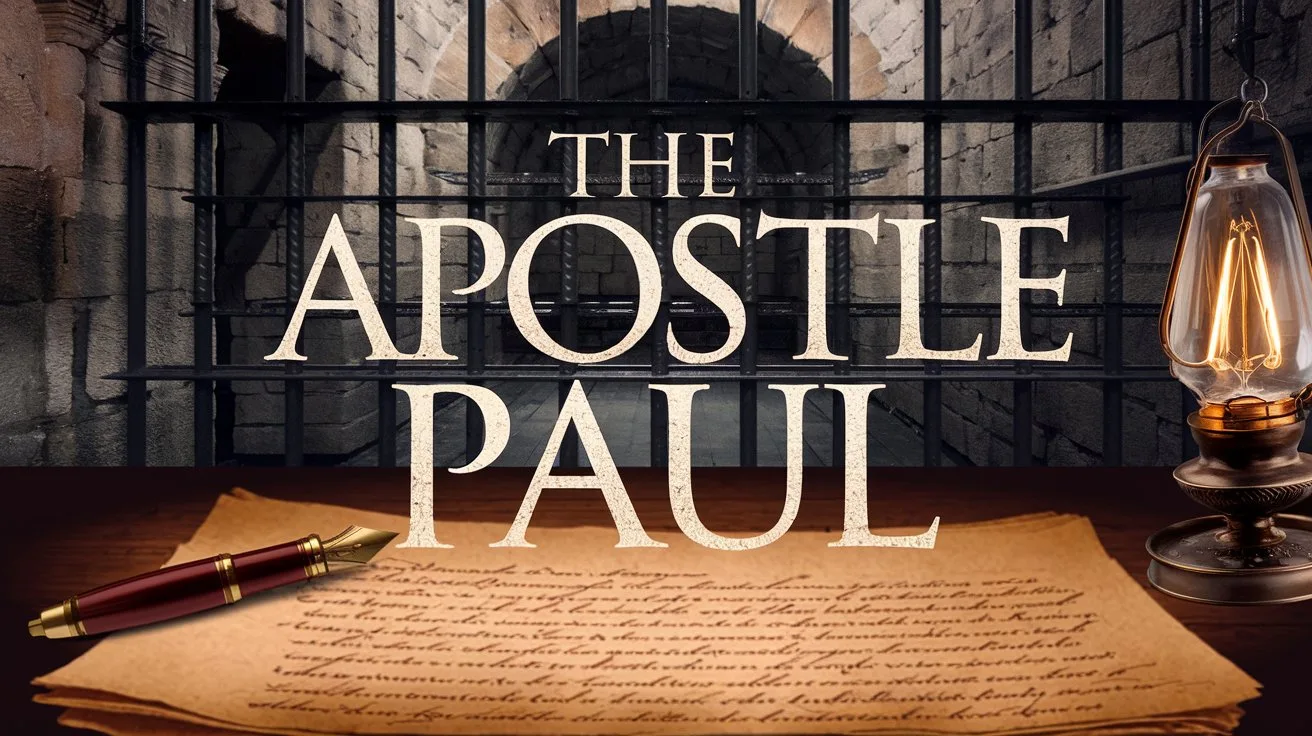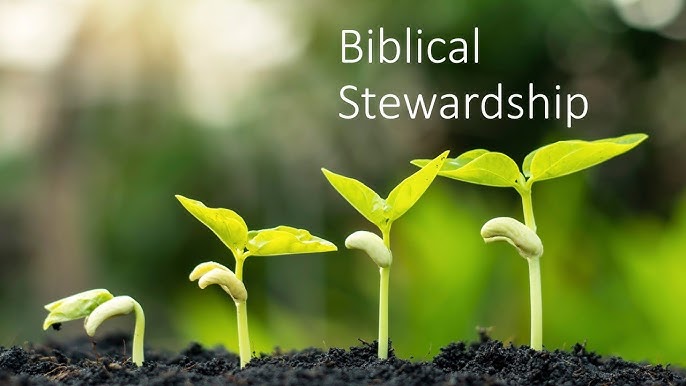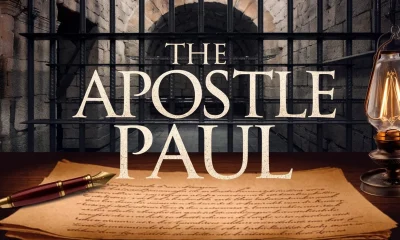Blog
The Dead Sea Scrolls and Their Connection to the Old Testament
Blog
Apostle Paul’s Powerful Prayer Life and How It Inspires Us Today

The Apostle Paul is widely known for his bold preaching, missionary journeys, and deep theological insight. But just as important is the way Paul prayed. His prayers—found throughout the New Testament—reveal a man who was entirely devoted to God, passionate about others, and deeply reliant on the power of the Holy Spirit. Whether he was giving thanks, interceding for believers, or asking for strength, Paul’s prayer life offers timeless wisdom for Christians today.
What makes Paul’s prayers so powerful is not just their eloquence, but their purpose. Each one came from a place of dependence on God and love for people. These prayers are practical, Spirit-led, and filled with truth. They remind us that prayer is not just a routine—it’s a relationship. Below are key aspects of Paul’s prayer life and how we can live them out.
Thanksgiving in Prayer
Paul almost always began with gratitude. Even when writing from prison or while facing persecution, he thanked God for others. Romans 1:9–10 and Philippians 1:3–5 show how consistently he prayed with joy and thanksgiving.
Gratitude shifts our focus. Instead of centering our prayers on what’s wrong, Paul teaches us to begin with what God has already done. Whether it’s a new day, an answered prayer, or even just the gift of peace, thankfulness transforms our hearts.
How to apply it: Start each prayer by thanking God—especially for people in your life and moments of grace you’ve received.
Praying for Spiritual Growth
Paul’s most passionate prayers often centered around believers growing in their knowledge and relationship with God. In Ephesians 1:17–18 and Colossians 1:9–10, he asks God to give believers wisdom, spiritual understanding, and maturity.
Rather than only asking God for things, Paul reminds us that real prayer seeks depth. It’s about becoming more like Jesus, not just being more comfortable.
How to apply it: Ask God daily to help you grow in faith, wisdom, and obedience. Pray for others to experience transformation as well.
Strength and Endurance
Paul never assumed life would be easy. His prayers in Ephesians 3:16 and Colossians 1:11 show his heart for believers to be strengthened by God’s Spirit, not just delivered from trials.
When you’re overwhelmed, it’s natural to ask God to take the burden away. But Paul teaches us that spiritual strength often comes not from escape, but from endurance.
How to apply it: When life gets difficult, pray not only for relief—but for the power to endure with faith, joy, and patience.
Unity and Love in the Church
Paul longed to see believers unified in love. He prayed in Romans 15:5–6 and 1 Thessalonians 3:12 for the church to be one in heart, overflowing with love even toward difficult people.
In a divided world, unity is a powerful witness. Love is the glue that holds the body of Christ together, and it must be fueled by prayer.
How to apply it: Pray for unity in your family, friendships, and church. Ask God to increase your love for others—especially those who are hard to love.
Intercession and Protection
Paul never stopped praying for others. He believed in the power of intercession, trusting that his prayers could go where he couldn’t. In 2 Thessalonians 3:3 and 1 Timothy 2:1, he teaches us to lift up others in prayer—whether they’re near or far, believers or not.
How to apply it: Make a habit of praying for others by name. Cover your family, friends, leaders, and even strangers in prayer.
Boldness in Ministry
Even Paul, bold as he was, asked for courage. His prayers in Ephesians 6:19 and Colossians 4:3–4 ask God for open doors and fearlessness in sharing the gospel.
We often hesitate when it comes to sharing our faith. Paul reminds us that even the boldest servants of God need prayer-fueled courage.
How to apply it: Ask God for boldness to speak the truth in love and to act when He calls you to lead, witness, or serve.
Blessings and Worship
Paul’s letters often end with rich blessings. Romans 15:13 and Philippians 4:23 show us that prayer can carry peace, hope, and grace to others. Paul also broke into worship mid-prayer, praising God simply for who He is.
Prayer is not only about requests—it’s also about reverence and wonder. Worship keeps us anchored in God’s greatness.
How to apply it: End your prayers with words of blessing and praise. Speak peace and grace over your own life and the lives of others.
Final Thoughts
The prayers of Apostle Paul are a masterclass in how to pray with purpose, power, and love. They remind us that prayer is more than asking for things—it’s about becoming who God has called us to be. Through thanksgiving, intercession, worship, and bold requests, Paul’s example teaches us how to connect deeply with God and lift others up.
Let Paul’s prayer life inspire you to build your own rhythm of prayer—one that reflects the heart of Christ and brings transformation to every part of your life.
Blog
Fighting Anxiety Through Scripture and Prayer

Anxiety is something many people face, often silently. Whether it stems from fear of the future, uncertainty about finances, health concerns, or relationship struggles, anxiety can weigh heavily on the mind and heart. But as believers, we are not left without help. God’s Word and prayer are powerful tools that equip us to stand strong in the face of fear. Through scripture and consistent prayer, we can experience peace that surpasses all understanding.
What the Bible Says About Anxiety
God addresses anxiety throughout the Bible, reminding us that fear is not from Him and that we are not alone in our struggles. One of the most well-known verses is found in Philippians 4:6-7, which says, “Do not be anxious about anything, but in every situation, by prayer and petition, with thanksgiving, present your requests to God. And the peace of God, which transcends all understanding, will guard your hearts and your minds in Christ Jesus.” This passage not only tells us not to worry but also gives us a clear instruction—to take everything to God in prayer, with thanksgiving.
Another encouraging scripture is 1 Peter 5:7, which says, “Cast all your anxiety on Him because He cares for you.” This reminds us that God is not distant or uninterested in our struggles. He wants us to hand over our burdens because He cares deeply about every part of our lives.
How Prayer Helps Calm Anxiety
Prayer is more than just a spiritual habit—it is a direct line to our Heavenly Father. When we pray, we’re not just speaking into the air; we are speaking to the One who created us, knows us, and can help us. Through prayer, we shift our focus from our problems to God’s promises. Prayer helps us release what we cannot control and rest in the assurance that God is still in charge.
When anxiety rises, take a moment to pause and pray honestly. Speak to God as you would a friend. Tell Him what you’re feeling and what’s weighing on you. Invite Him into the situation. As you do this consistently, you’ll begin to see how peace starts to replace panic.
Scriptures to Meditate On
Here are a few verses that can be powerful anchors in times of anxiety:
- Isaiah 41:10 – “So do not fear, for I am with you; do not be dismayed, for I am your God.”
- Psalm 34:4 – “I sought the Lord, and he answered me; he delivered me from all my fears.”
- Matthew 6:34 – “Therefore do not worry about tomorrow, for tomorrow will worry about itself.”
- John 14:27 – “Peace I leave with you; my peace I give you. Do not let your hearts be troubled and do not be afraid.”
Reading and speaking these verses aloud can renew your mind and build your faith.
Moving Forward in Peace
Anxiety may try to return, but you don’t have to fight it alone. Scripture and prayer are not one-time solutions—they are daily habits that help you walk in victory. As you fill your heart with God’s Word and pour out your worries in prayer, you’ll begin to experience the steady peace of His presence.
You are not powerless. Through God, you have everything you need to face anxiety and walk in peace, one day at a time.
Blog
Biblical Stewardship: How to Implement It in Real Life

Stewardship is the biblical principle that everything we have—our time, money, talents, relationships, and even the earth—belongs to God. As His stewards, we are entrusted to manage these resources wisely and faithfully. Living a life of stewardship is not only an act of obedience but a way to bring glory to God in every area of life. Here’s a breakdown of the different areas of stewardship and how to implement them practically.
1. Financial Stewardship
God calls us to manage wealth with wisdom, generosity, and integrity. This includes giving cheerfully, budgeting responsibly, avoiding debt, and resisting the temptation of greed.
Luke 16:11 – “If you have not been trustworthy in handling worldly wealth, who will trust you with true riches?”
Proverbs 3:9 – “Honor the Lord with your wealth, with the firstfruits of all your crops.”
How to implement it:
- Tithe consistently and give to ministries, missions, or those in need.
- Make a monthly budget and stick to it.
- Save for the future while trusting God as your provider.
- Avoid materialism by focusing on eternal value, not possessions.
2. Time Stewardship
Time is a non-renewable gift. Stewarding it means using each moment to honor God, build others up, and grow spiritually.
Ephesians 5:16 – “Making the most of every opportunity, because the days are evil.”
Psalm 90:12 – “Teach us to number our days, that we may gain a heart of wisdom.”
How to implement it:
- Set daily and weekly priorities based on God’s purpose for your life.
- Eliminate time-wasting habits and distractions.
- Spend regular time in prayer, worship, and study.
- Balance work, rest, and relationships with intentionality.
3. Talent & Gift Stewardship
God gives each believer spiritual gifts and natural talents to serve others and grow His kingdom. These should be developed and used—not hidden or neglected.
1 Peter 4:10 – “Use whatever gift you have received to serve others, as faithful stewards…”
Romans 12:6 – “We have different gifts, according to the grace given to each of us.”
How to implement it:
- Take a spiritual gifts test or seek wise counsel to identify your gifts.
- Serve in your local church, community, or workplace with your talents.
- Continue developing your skills for greater impact.
- Use your gifts to glorify God, not for self-promotion.
4. Body & Health Stewardship
Our bodies are temples of the Holy Spirit. Caring for our physical health is both an act of worship and preparation for long-term ministry.
1 Corinthians 6:19-20 – “Your body is a temple of the Holy Spirit… honor God with your bodies.”
Romans 12:1 – “Offer your bodies as a living sacrifice, holy and pleasing to God—this is your true and proper worship.”
How to implement it:
- Exercise regularly and eat balanced meals.
- Rest when needed and avoid overworking.
- Avoid unhealthy habits or addictions.
- Practice self-discipline in physical and emotional choices.
5. Relationship Stewardship
Healthy relationships require love, patience, forgiveness, and humility. Stewarding them well reflects Christ’s character.
Romans 12:18 – “If it is possible, as far as it depends on you, live at peace with everyone.”
Ephesians 4:2 – “Be completely humble and gentle; be patient, bearing with one another in love.”
How to implement it:
- Nurture your family relationships with intentional time and care.
- Forgive quickly and seek reconciliation when conflict arises.
- Build others up through encouragement, not criticism.
- Choose friends who help you grow spiritually.
6. Gospel & Ministry Stewardship
We’ve been entrusted with the good news of Jesus and called to build others up in the faith. This is one of the most sacred areas of stewardship.
1 Corinthians 9:17 – “I am entrusted with a commission.”
2 Timothy 4:2 – “Preach the word; be prepared in season and out of season.”
How to implement it:
- Share your testimony and the Gospel whenever God opens the door.
- Lead or support discipleship, youth, or outreach ministries.
- Pray regularly for your church and spiritual leaders.
- Stay rooted in the Word to be ready for any opportunity to minister.
7. Environmental Stewardship
God placed humanity in the garden not just to enjoy it, but to care for it. Stewardship includes how we treat creation and use the resources He’s provided.
Genesis 2:15 – “The Lord God took the man and put him in the Garden… to work it and take care of it.”
Psalm 24:1 – “The earth is the Lord’s, and everything in it.”
How to implement it:
- Reduce waste by reusing and recycling.
- Conserve energy and use resources wisely.
- Enjoy and respect nature as part of God’s creation.
- Support efforts that care for animals and the environment.
Living a Life of God-Honoring Stewardship
Biblical stewardship is not about perfection—it’s about being faithful with what God has given you. Every day offers opportunities to steward time, money, talents, and relationships in a way that reflects God’s values.
By applying these biblical principles, you will grow in spiritual maturity, increase your impact, and live a life that glorifies God in all things. Stewardship is a lifestyle—and when done well, it honors the One who entrusted everything to us in the first place.
-

 Sermons10 months ago
Sermons10 months agoThe Lord Will Lighten Your Load By Pastor Steven Furtick At Elevation Church
-

 Music11 months ago
Music11 months agoFor Me (Remix) by Jay Brown
-

 Movies11 months ago
Movies11 months agoThe Book of Eli: The Deeper Meaning
-

 Blog11 months ago
Blog11 months agoFighting Anxiety Through Scripture and Prayer
-

 Blog11 months ago
Blog11 months agoBiblical Stewardship: How to Implement It in Real Life
-

 Books11 months ago
Books11 months agoPigs in the Parlor: A Powerful Guide for Christians Seeking Deliverance
-

 Blog10 months ago
Blog10 months agoApostle Paul’s Powerful Prayer Life and How It Inspires Us Today
-

 Testimonies10 months ago
Testimonies10 months agoFrom Gang Member to Gospel Messenger: The Testimony of Johnny Chang





